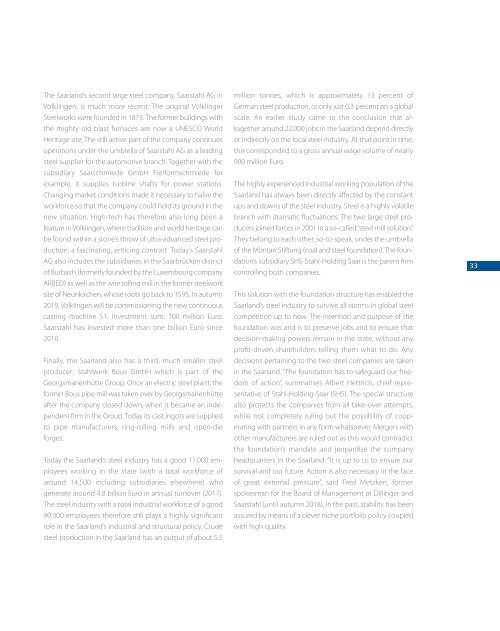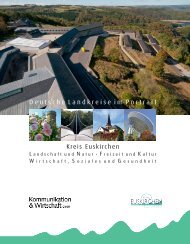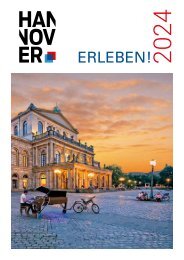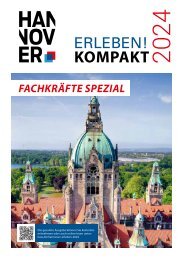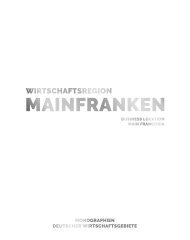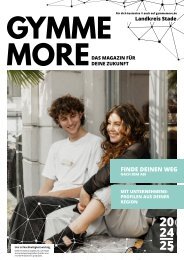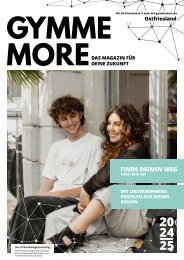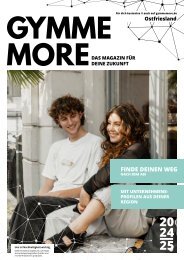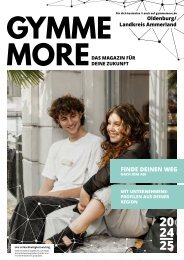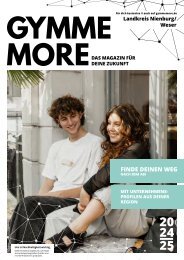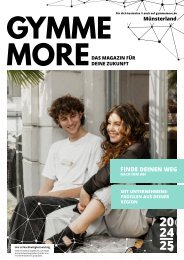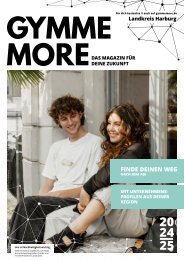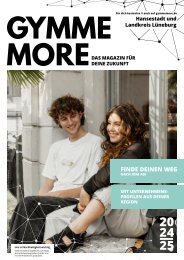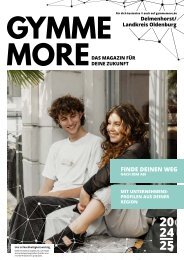Monographie_Saarland
You also want an ePaper? Increase the reach of your titles
YUMPU automatically turns print PDFs into web optimized ePapers that Google loves.
The <strong>Saarland</strong>’s second large steel company, Saarstahl AG in<br />
Völklingen, is much more recent. The original Völklinger<br />
Steelworks were founded in 1873. The former buildings with<br />
the mighty old blast furnaces are now a UNESCO World<br />
Heritage site. The still active part of the company continues<br />
operations under the umbrella of Saarstahl AG as a leading<br />
steel supplier for the automotive branch. Together with the<br />
subsidiary Saarschmiede GmbH Freiformschmiede for<br />
example, it supplies turbine shafts for power stations.<br />
Changing market conditions made it necessary to halve the<br />
workforce so that the company could hold its ground in the<br />
new situation. High-tech has therefore also long been a<br />
feature in Völklingen, where tradition and world heritage can<br />
be found within a stone’s throw of ultra-advanced steel production:<br />
a fascinating, enticing contrast. Today’s Saarstahl<br />
AG also includes the subsidiaries in the Saarbrücken district<br />
of Burbach (formerly founded by the Luxembourg company<br />
ARBED) as well as the wire rolling mill in the former steelwork<br />
site of Neunkirchen, whose roots go back to 1595. In autumn<br />
2019, Völklingen will be commissioning the new continuous<br />
casting machine S1. Investment sum: 100 million Euro.<br />
Saarstahl has invested more than one billion Euro since<br />
2010.<br />
Finally, the <strong>Saarland</strong> also has a third, much smaller steel<br />
producer: Stahlwerk Bous GmbH which is part of the<br />
Georgsmarienhütte Group. Once an electric steel plant, the<br />
former Bous pipe mill was taken over by Georgsmarienhütte<br />
after the company closed down, when it became an independent<br />
firm in the Group. Today its cast ingots are supplied<br />
to pipe manufacturers, ring-rolling mills and open-die<br />
forges.<br />
Today the <strong>Saarland</strong>’s steel industry has a good 11,000 employees<br />
working in the state (with a total workforce of<br />
around 14,500 including subsidiaries elsewhere) who<br />
generate around 4.8 billion Euro in annual turnover (2017).<br />
The steel industry with a total industrial workforce of a good<br />
90,000 employees therefore still plays a highly significant<br />
role in the <strong>Saarland</strong>’s industrial and structural policy. Crude<br />
steel production in the <strong>Saarland</strong> has an output of about 5.5<br />
million tonnes, which is approximately 13 percent of<br />
German steel production, or only just 0.3 percent on a global<br />
scale. An earlier study came to the conclusion that al -<br />
together around 22,000 jobs in the <strong>Saarland</strong> depend directly<br />
or indirectly on the local steel industry. At that point in time,<br />
this corresponded to a gross annual wage volume of nearly<br />
900 million Euro.<br />
The highly experienced industrial working population of the<br />
<strong>Saarland</strong> has always been directly affected by the constant<br />
ups and downs of the steel industry. Steel is a highly volatile<br />
branch with dramatic fluctuations. The two large steel producers<br />
joined forces in 2001 in a so-called “steel mill solution”.<br />
They belong to each other, so-to-speak, under the umbrella<br />
of the Montan Stiftung (coal and steel foundation). The foundation’s<br />
subsidiary SHS-Stahl-Holding Saar is the parent firm<br />
controlling both companies.<br />
This solution with the foundation structure has enabled the<br />
<strong>Saarland</strong>’s steel industry to survive all storms in global steel<br />
competition up to now. The intention and purpose of the<br />
foundation was and is to preserve jobs and to ensure that<br />
decision-making powers remain in the state, without any<br />
profit-driven shareholders telling them what to do. Any<br />
decisions pertaining to the two steel companies are taken<br />
in the <strong>Saarland</strong>. “The foundation has to safeguard our freedom<br />
of action”, summarises Albert Hettrich, chief repre -<br />
sentative of Stahl-Holding-Saar (SHS). The special structure<br />
also protects the companies from all take-over attempts,<br />
while not completely ruling out the possibility of coop -<br />
erating with partners in any form whatsoever. Mergers with<br />
other manufacturers are ruled out as this would contradict<br />
the foundation’s mandate and jeopardise the company<br />
headquarters in the <strong>Saarland</strong>. “It is up to us to ensure our<br />
survival and our future. Action is also necessary in the face<br />
of great external pressure”, said Fred Metzken, former<br />
spokesman for the Board of Management at Dillinger and<br />
Saarstahl (until autumn 2018). In the past, stability has been<br />
assured by means of a clever niche portfolio policy coupled<br />
with high quality.<br />
33


